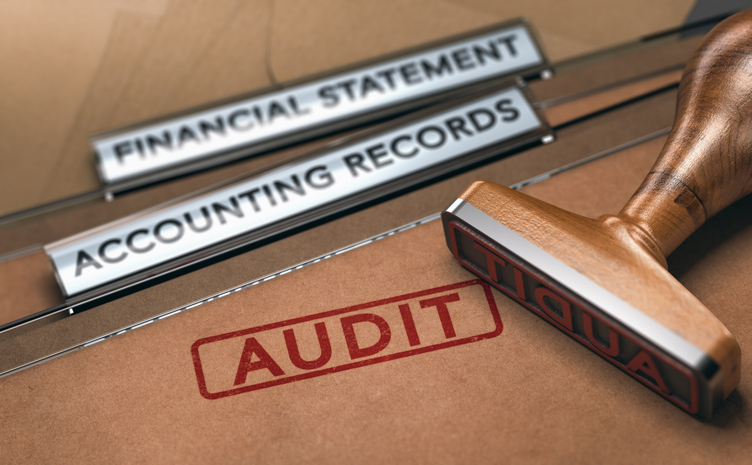Wise Giving Wednesday: Audited Financial Statements vs. IRS Form 990

Audited Financial Statements vs. IRS Form 990
Charity finances are top of mind for most donors as demonstrated by the most recent Give.org Donor Trust Report survey of 2,100 adult Americans. While BBB Wise Giving Alliance urges donors to take a broader look, charity finances still come first to many potential donors. Given that reality, what is the best source for charity financial information? While BBB WGA reviews the both the IRS Form 990 and the charity’s audited financial statements, when it comes to financial assessment, we tend to focus more on the audited financial statements for several reasons.
- 1. Reliability of audited financial statements. Reliability, relevance, comparability, and understandability are some of the core objectives of Generally Accepted Accounting Principles (GAAP). As a standards-based charity evaluator, we also value such principles. GAAP represents the accounting standards established in the United States by the Financial Accounting Standards Board. In turn, the auditor’s opinion attached to audited financial statements will identify any material aberration from GAAP so that users are aware of these differences when reviewing financial information. In contrast, the IRS Form 990 was not designed or intended to follow GAAP.
- 2. Donated services and the use of facilities. Under certain conditions, donated services are required to be recognized and included as part of revenues and/or expenses in a charity’s audited financial statements. The IRS Form 990 does not permit these items to be included as part of revenues and expenses reported in that form. For some charities, such in-kind contributions are significant and offer a more complete financial picture.
- 3. Unrealized gains or losses on investments. For charity audited financial statements, unrealized gains or losses on investments must be reflected in the financial statements’ revenues. An unrealized gain occurs when the current market value of an asset (for example, a stock) exceeds its purchase price, but the asset has not been sold. For charities of considerable size, this is vital information that helps provide a more complete financial picture of the resources available to the organization. A similar result can be said for unrealized losses. The IRS Form 990, however, does not permit these unrealized gains or losses to be included in the revenues or expenses of the charity. Although they are not included in the revenues and expenses section, the IRS Form 990, however, has a reconciliation section in Part XI, line 5 that enables unrealized gains and losses to be disclosed.
- 4. Consolidated and combined financial statements. In some cases, a charity may be closely affiliated with other nonprofit organization(s) in terms of governance, finances, and fundraising efforts. Under certain conditions, GAAP may require the finances of these organizations to be consolidated into a single entity as one audited financial statement. Or a combined statement might result in showing each entity separately but in one document. Either case provides a more complete picture of the charity’s finances. In terms of the IRS Form 990, separate forms would be completed for each nonprofit organization regardless of the close ties between them. As a result, the IRS approach can present more of a challenge for users.
- 5. Houses of worship. Organizations that operate as houses of worship (churches, synagogues, mosques, etc.) are not required to complete and file an IRS Form 990. However, in order to ensure proper financial oversight, houses of worship of significant size may have audited financial statements prepared. BBB Wise Giving Alliance does not report on houses of worship unless they are engaged in significant solicitation of the general public as opposed to just soliciting their respective congregations.
BBB Charity Standard 11 calls for charities to have audited financial statements when total income exceeds $1 million. For charities, whose annual gross income is less than $1 million, a review by a certified public accountant is sufficient to meet this standard. For charities, whose annual gross income is less than $250,000, an internally produced, complete financial statement is adequate as long as it includes the same elements (i.e., statement of financial position, statement of activities, statement of cash flows, notes, etc.) as the audited financial statements. If this is not available for such smaller charities, then the IRS Form 990 or 990-EZ Form would be sufficient.
Given all the above, why does the IRS Form 990 receive so much attention? The main reasons are accessibility and the inclusion of some non-financial information. IRS Form 990 data can be obtained from many sources, including the IRS. In addition, there are portions of the IRS Form 990, such as a roster of the board, leadership compensation, and governance information, one would not find in an audited financial statement.
Heart of Giving Podcast
This week’s Heart of Giving Podcast features two guests from The Center For Effective Philanthropy, Phil Buchanan, President, and Grace Nicolette, Vice President. They offer valuable insights on effective giving, the state of nonprofits, and the future of philanthropy. Their perspective is both inspiring and thought-provoking. Both of them also co-host the Center’s podcast, Giving Done Right.
Recent Reports
We are always working with charities to publish or update reports for donors.
Visit Give.org or local BBBs to check out any charity before giving. Our
recently evaluated charities include:
Finally, remember to let us know by going to
give.org/charity-inquiry if you
are interested in seeing a report on a charity not on the list and we will do
our best to produce one.


